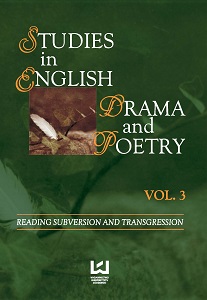The Discourse of Orientalism in C. S. Lewis’s Chronicles of Narnia
The Discourse of Orientalism in C. S. Lewis’s Chronicles of Narnia
Author(s): Andrzej Wicher
Subject(s): British Literature
Published by: Wydawnictwo Uniwersytetu Łódzkiego
Keywords: discourse of orientalism;C. S. Lewis;Chronicles of Narnia
Summary/Abstract: It has been stated, on the basis of certain motifs in The Chronicles of Narnia, that “like many Englishmen of his era, Lewis was unconsciously but regrettably unsympathetic to things and people Middle Eastern” (Ford 363). My task in this article would be to examine the nature of this prejudice because I generally agree that we can legitimately talk about C. S. Lewis’s prejudice against Oriental cultures. The crucial problem seems to be whether this prejudice was so serious and so strong that it should in turn prejudice us, not only perhaps against what Lewis had to say about the Oriental cultures, but maybe even against this author himself. Naturally, Lewis’s “anti-Orientalism” is hardly subversive in relation to his own cultural background, but it would be hard to deny that it is subversive in relation to the currently dominant discourse of multiculturalism. The material for the discussion is provided, for the most part, by the thread of Calormen, a fantastic country (appearing only occasionally in The Chronicles of Narnia, mainly in The Horse and His Boy) that shares many characteristics with a certain stereotypical conception of the Oriental civilization. But also some other books by C. S. Lewis, notably his essays, are taken into account. Some reference is also made to the famous book by Edward Said, Orientalism.
Book: Studies in English Drama and Poetry vol. 3. Reading subversion and transgression
- Page Range: 201-215
- Page Count: 15
- Publication Year: 2013
- Language: English
- Content File-PDF

